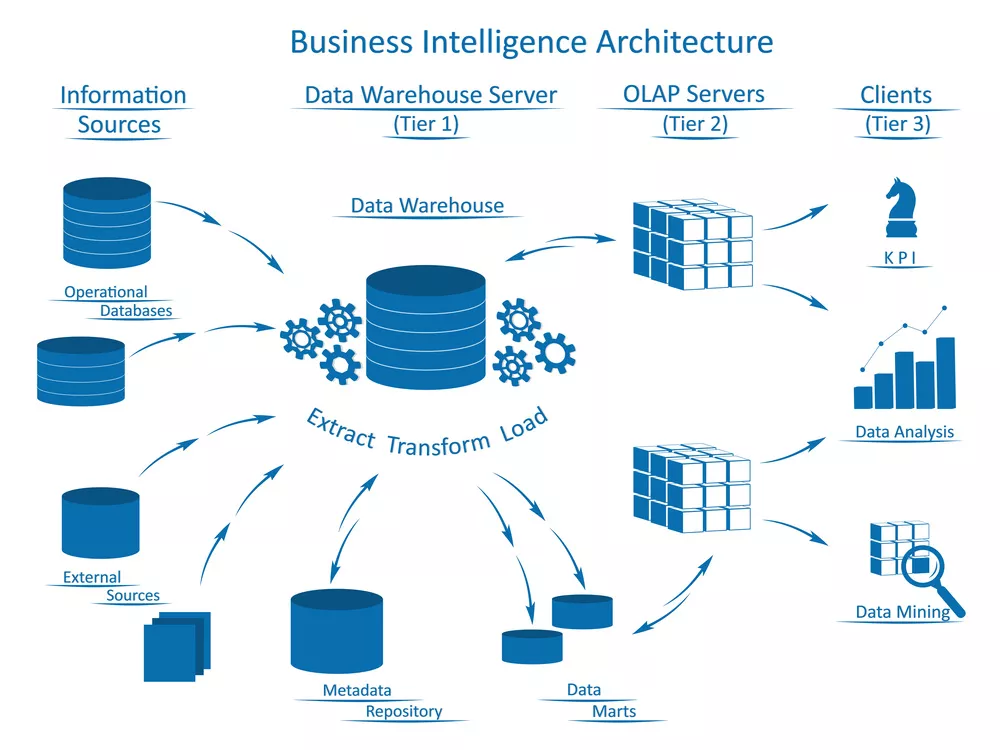In the healthcare industry, a metadata repository is an essential tool used to create a database of information. The database contains information from patients, laboratories, doctors, and payment data that’s important for diagnosis, treatment, and managing patients over time. The data also range from patients to administrative functions of the organization, including records of employees. In other words, a metadata repository preserves all the organization’s data, including past and current projects, so you’ll have no trouble retrieving them anytime.

Obtaining a well-maintained and structured repository enables enterprises to spend little time concentrating on adding or deleting new information. It also ensures that data are easily maintained, analyzed, linked, shared, and integrated to enhance innovation in the medical industry. Thus, a metadata repository can be a beneficial tool for any CEO, nurse, doctor, or any other healthcare professional who readily needs access to crucial information.
Impact Of Metadata Repositories In The Healthcare Industry
Individuals in the healthcare industry understand the importance of information. However, some still don’t appreciate the significance of a robust integrated approach to database management that offers an enterprise the uniformity and accessibility of data across all departments. With such a system, you can immediately detect errors and trace the data lineage while managing clinical metadata functions seamlessly.
The importance of data management in ensuring compliance with the various regulatory bodies hasn’t been fully acknowledged. Besides, it’s somehow discouraging to see many medical institutions still using manual systems. And for those with automated systems, it’s common to find that most lack uniformity, thus creating a considerable burden of manually consolidating data. As a result, the consolidated data may contain many errors that lead to numerous compliance issues.
Moreover, you can consider using a metadata repository if your hospital is conducting clinical trials. The metadata repository allows healthcare workers to closely track and monitor medical outcomes as well as historical data during clinical trials. Besides, you need a metadata repository for such trials because they may comprise diverse datasets involving different clinical trials carried over a long time. Therefore, the repository allows you to access the datasets easily and display them in an organized format.
Additionally, using a metadata repository in your clinical research guarantees timely completion of tests and trials while also ensuring transparency and compliance with relevant regulatory bodies.
Here are some other advantages of a well-maintained and structured metadata repository for your healthcare organization:
Boosts Teamwork Within Healthcare Organizations
Information from various healthcare departments such as human resources, billing, finance, pharmacy, and others are classified differently. This can give rise to redundant data, which leads to the wastage of resources during data management and analysis. The metadata repository gives you specific glossary terms for each data set in your organization, enabling data sharing across all departments.
If your organization’s terminologies aren’t selected and outlined, they will cause mistakes, disorderliness, and disagreements among your employees. A healthcare organization’s glossary creates a shared understanding of all terms used in the healthcare industry, enhancing your patient’s safety and care standards.
On several occasions, you may need to refer a patient from your hospital to a specialist for further diagnosis. Suppose, by bad luck, some critical information is lost, causing a catastrophe. The specialist may have to repeat some of the tests you did, wasting the time needed to help the patient adequately. Using a metadata repository with a clearly defined glossary might come to your rescue as it enables efficient sharing of patient data across different medical institutions.
Enables Instant Access To Data
In this generation, there’s a need to obtain relevant information at the click of a button. However, this may be a wild goose chase if you lack the metadata. A good metadata repository can help you get the best out of your data collection. An automatic system allows you to access the information you need within seconds. Such a system enables healthcare providers to make accurate medical decisions and prescribe an effective treatment plan.
In case your organization lacks an automated system, proving your compliance with the various regulatory requirements can be challenging. Your data team will also have an arduous task going through all audit reports to ascertain the source of the data. However, with a well-maintained and structured metadata repository, you can immediately make a graphic display of data to help you identify individual datasets and their origin. Hence, automation of your organization’s data management system is crucial and you’d want to act accordingly.

Enables Understanding Of Your Data Lineage
During emergencies, you may experience a large influx of patients in and out of your hospital, resulting in large volumes of data ladened with many human errors. An automatic data lineage system will help your employees to detect, identify, and record a mistake, quickly trace its origin, and correct it at its earliest stage. It also allows the team to promptly assess the impact before making changes to prevent future occurrences.
For instance, imagine a client accuses your medical facility of mishaps. In such circumstances, your healthcare metadata management system will help you trace the origin of the matter, who’s accountable for it, and, if possible, avoid the penalties that may accrue. The system registers the last person to access the information, where and when it was modified, and who modified it. It also helps you identify issues within your facility and inspect database information as it changes over time. Thus, the system can solve problems arising in your hospital within a short time.
Conclusion
It’s unfortunate that other industries have embraced modern technology in managing client data while the health industry is left behind. However, it’s not too late to catch up with the pace.
Embracing metadata repository management systems in your hospital can help improve service delivery to your clients and create a seamless working environment for your employees. Installing the system will help improve teamwork among your employees, quickly solve daily problems, easily access patient data whenever needed, and encourage collaboration between your facility and other organizations. Take the step, and you’ll never regret your decision.
As the driving force behind WikiPluck, I am dedicated to curating and sharing insightful knowledge across a spectrum of subjects. From technology trends to Business advice, WikiPluck strives to be a go-to resource for those seeking to enhance their understanding and make informed decisions.
Join me on this journey of discovery and enlightenment as we pluck the gems of wisdom from the vast landscape of knowledge.
